
Buying your first home is a major step, but it can also be a complex process. From working out your budget and securing a home loan to searching for properties and finalising the purchase, there are many factors to consider. To guide you through this journey with confidence, we’ve put together a detailed checklist and practical advice that covers everything from the initial preparation to closing the deal. Ready to begin your path to homeownership?
Key Takeaways
- Improve Your Credit Score: A strong credit score increases your chances of securing a home loan and getting favourable terms.
- Get Pre-Approved: Pre-approval for a home loan strengthens your offer and helps you understand your budget.
- Plan for Additional Costs: Set aside funds for hidden expenses like bond registration fees, transfer duties, and ongoing rates to avoid unexpected financial burdens.
About Arcadia Finance
Simplify your loan process with Arcadia Finance. Select from 19 reputable lenders with no application fees, each adhering to the standards of South Africa’s National Credit Regulator. Enjoy a hassle-free experience and find options perfectly matched to your financial needs.
Specific Terms for Buying a House
When buying a home, several important terms frequently arise that you need to be familiar with. These terms relate to different aspects of the financial and legal processes involved in transferring ownership of a property to you. Here’s an explanation of some of these key terms:
Purchase Price
The purchase price is the amount you agree to pay the seller for the property. It is typically the largest financial component of a property transaction and serves as the basis for calculating other associated costs, such as transfer duty and registration fees.
Transfer Duty
Transfer duty is a tax levied by the government on property transactions, payable to the South African Revenue Service (SARS). The amount of transfer duty depends on the property’s value. Government thresholds determine the applicable transfer duty, if any. For instance, properties valued below a certain threshold (e.g., R1 000 000) are exempt from transfer duty, providing relief to first-time buyers or those purchasing lower-priced properties.
Transfer Costs
Transfer costs, often mistaken for transfer duty, are the fees charged by the transferring attorney for managing the legal transfer of the property into your name. These fees are regulated but can vary depending on the transaction’s complexity and the property’s purchase price. Transfer costs include the attorney’s fees, document handling fees, and additional administrative fees needed to complete the transfer process.
Registration
Registration fees are paid to the Deeds Office to officially register the change of ownership and the new mortgage bond. These fees are also scaled based on the property’s purchase price. An attorney typically manages the registration process, and the fee is part of the legal services provided during the purchase. Registration ensures the property is legally transferred into your name and that any mortgage bond is registered, securing the lender’s interest in the property.
Maintaining your new home is just as important as buying it. From routine upkeep to occasional renovations, understanding the costs involved is key. For instance, get a clear idea of what refreshing your home’s paint can cost by checking out our detailed breakdown on Cost of House Painting in South Africa.

Be Mindful of Hidden Costs When Buying a Home
There are several initial expenses associated with purchasing a property beyond the agreed price. It’s important to be aware of these additional charges to ensure you have enough funds or can arrange financing to cover these costs. Here’s a detailed breakdown of these expenses:
- Whenever property ownership is transferred, a transfer duty must be paid to SARS. The amount depends on the property’s value, with properties valued at or below R1 000 000 being exempt from this duty.
- The transferring attorney charges fees for the legal process of transferring ownership into your name. These fees follow a sliding scale based on the property’s value. It’s worth noting that the exemption for properties under R1 000 000 only applies to transfer duty, not to these legal fees.
- When purchasing from a developer, transfer duty is not applicable, but VAT is charged on the purchase price.
- Additionally, you’ll need to pay a bond registration fee to a lawyer for registering your bond at the Deeds Office.
- This lawyer will also charge for various smaller, variable costs such as FICA fees, electronic instruction fees, and postage, which can amount to approximately R2 200. These fees may differ between lawyers.
Ready to find the best mortgage rates? Read our comprehensive ooba home loan review to compare and see how ooba stands out from the competition.
Here is a table outlining approximate costs, including VAT, to help you budget effectively. Please note, fees can vary between different attorneys.
| Purchase Price | Transfer Duty | Transfer Costs | Registration |
|---|---|---|---|
| R500 000 | R0 | R12 000 | R10 500 |
| R700 000 | R0 | R16 500 | R13 750 |
| R1 000 000 | R0 | R20 750 | R17 300 |
| R1 500 000 | R20 000 | R27 000 | R18 450 |
| R2 000 000 | R45 000 | R35 200 | R20 000 |
| R2 500 000 | R60 000 | R45 000 | R22 300 |
| R3 000 000 | R85 000 | R55 000 | R25 000 |
Organise Your Finances:
Consistently paying your bills on time each month will help you maintain a strong credit rating. Additionally, it’s wise to reduce as much debt as possible before applying for a home loan, as lenders will take your existing financial obligations into account during the approval process.
If you’re navigating the complex world of property for the first time, understanding What is a Bond Originator? can give you a massive advantage in securing the right home loan without the stress.

9 Tips for Buying a House in South Africa for the First Time
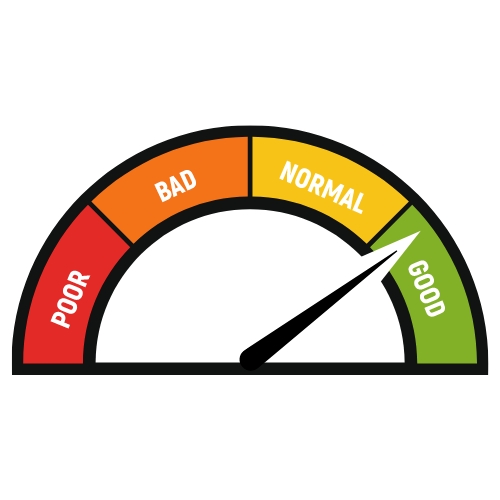
Improve Your Credit Score
If you don’t have sufficient savings to cover the full cost of your new home, you’ll likely need a home loan to finance part or all of the purchase. Your credit score is crucial in determining both your loan approval and the amount you can borrow. Maintaining a high credit score is essential for securing favourable loan terms. Managing multiple credit accounts responsibly will positively influence your score. It’s a good idea to review your credit report annually. Services such as CreditView offer a free and straightforward way to monitor your score. Address any issues you find before applying for a home loan to enhance your chances of approval.
A stellar credit score can open doors to better mortgage rates and terms, significantly impacting your home buying journey. Discover the importance of a good credit score when buying a house!

Obtain a Pre-Approved Home Loan
Getting pre-approved for a home loan can strengthen your bargaining position. Applying for pre-approval through your bank or services like BetterBond and Ooba shows sellers that you’re financially reliable, making your offer more appealing. Pre-approval also gives you a clearer understanding of your budget, allowing you to focus on properties within your financial range and making the home-buying process more straightforward.
Before diving into your first home purchase, understanding how to save money for a property is crucial. Creating a solid savings plan not only helps you with the deposit but also prepares you for unexpected expenses along the way.
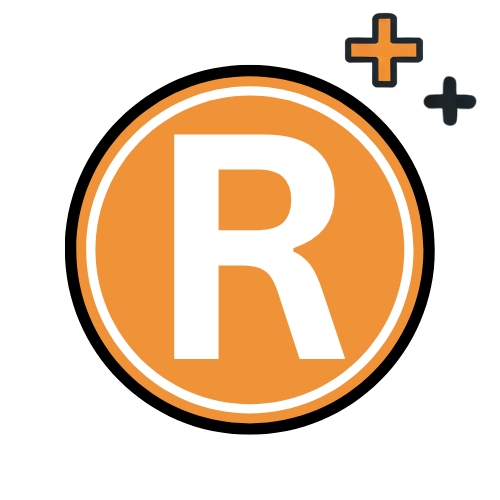
Account for Additional Costs
The initial deposit is just one of many expenses involved in buying a house. Be prepared for various additional costs such as bond registration fees, property transfer duties, and levies if you’re purchasing a sectional title property. You should also consider ongoing expenses like municipal rates and taxes, along with your monthly bond repayments, to accurately assess your affordability.

Research the Area Thoroughly
Before buying, research the average property prices in the area to ensure that the price of your chosen property is reasonable. Beyond price, assess how well the location suits your lifestyle needs. Consider factors such as commuting time, transport options, proximity to schools, shopping centres, and overall security. Remember, while you can change or renovate a home’s physical features, the location is fixed.
Purchasing your first home can be both exciting and daunting. Make sure you understand the full Process of Buying a House to avoid pitfalls and prepare for every step with confidence.
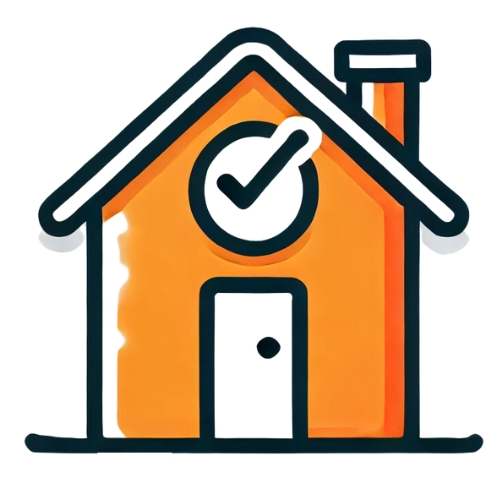
Verify Approved House Plans
When applying for a home loan, banks generally require approved house plans to finalise the loan. Ensure that these plans accurately reflect the property’s current structure, including any additional buildings such as cottages or garages. This step helps prevent discrepancies and ensures that what you are purchasing matches the approved plans.

Check Compliance and Clearance Certificates
To complete the registration of your new home, the seller must provide various compliance certificates, including those for rates, electrical systems, and gas installations. Request these documents early in the process to avoid delays during the transfer and ensure that the property meets all legal requirements.

Inspect for Defects
The seller is required to disclose any hidden defects, issues not immediately visible but that could affect the property’s condition, such as plumbing problems, rising damp, or structural weaknesses. In South Africa, the “voetstoots” clause means that once the sale is complete, the seller is not liable for defects that were not disclosed. Therefore, it’s essential to hire a professional inspector to identify any potential problems before finalising the purchase. This can help you avoid costly repairs and ensure the property’s value.
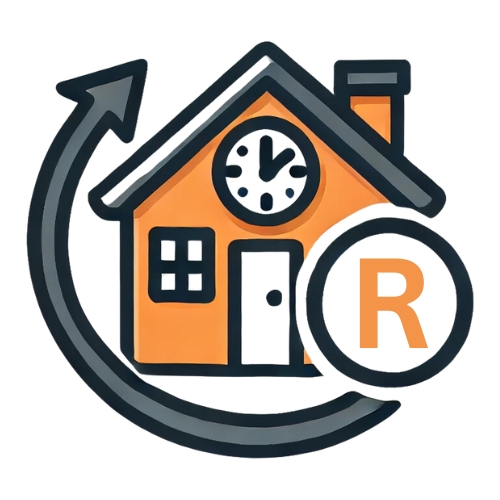
Opt for a Shorter Mortgage Term
Choosing a mortgage with a shorter term can reduce the total cost of your loan by lowering the amount of interest paid over time. While this will result in higher monthly payments, you’ll pay off the mortgage sooner and save money in the long run. If a shorter term is too demanding on your budget, consider a longer term but aim to make extra payments when possible to reduce the principal amount.
Choosing the right home loan term is a crucial step when buying your first house. Our guide on What is a Mortgage Term breaks it down so you can make the best decision from the start.
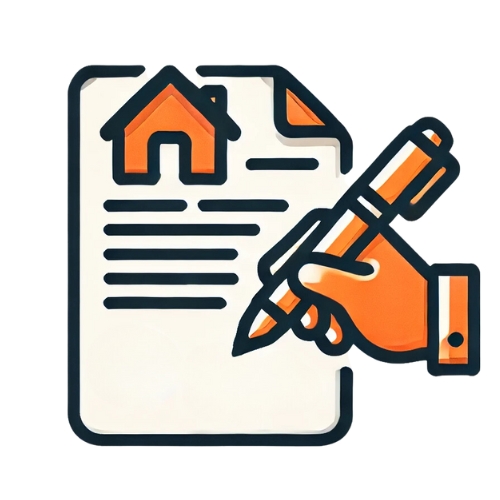
Understand the Offer to Purchase
The offer to purchase is a legally binding document that outlines the terms of your home purchase. It’s essential to read and understand every detail before signing. Don’t hesitate to ask questions or seek clarity on any terms that are unclear. Your estate agent should help you understand each aspect of the offer, ensuring you are fully informed and protected throughout the process.
As a new homeowner considering renting out your property, it’s essential to understand What a Landlord Cannot Do in South Africa. Familiarizing yourself with these rules ensures you start your landlord journey on the right foot, avoiding common legal mistakes.

Buying a House: Step-by-Step Guide
| Step | Description |
|---|---|
| 1. Determine What You Can Afford | Get a clear understanding of your budget and explore your financing options. Use tools like ooba Home Loans or the Bond Indicator to get prequalified for a home loan, helping you set realistic expectations and simplify your property search. |
| 2. Assess Your Credit Record | Your credit score impacts both home loan approval and interest rates. Check your score using tools like the Bond Indicator. A strong credit record enhances your chances of securing a loan with favourable terms. |
| 3. Hire an Estate Agent | Select a reputable estate agent to assist you through the home-buying process, manage the paperwork, and negotiate on your behalf. Their services are usually free for buyers, as the seller pays their commission. |
| 4. Find Your Ideal Home | Look for a property that suits your needs, keeping your budget and your agent’s guidance in mind. Consider the neighbourhood, proximity to amenities, and any renovation plans. Clearly communicate your requirements to make the search process more efficient. |
| 5. Make an “Offer to Purchase” | Once you find a suitable home, make a legally binding offer to purchase. Review all terms carefully to avoid penalties for withdrawal, unless the seller does not meet specific conditions. |
| 6. Arrange a Home Inspection | Include a home inspection clause in your offer to identify any hidden defects. The inspection report can assist in negotiating repairs or adjusting terms. A thorough inspection is important, particularly if the offer includes a voetstoots clause. |
| 7. Apply for a Home Loan | Once your offer is accepted, apply for a home loan using a comparison service. They will submit your application to multiple banks, boosting your chances of approval and helping you secure better interest rates. |
| 8. Transfer and Bond Registration | After loan approval, the seller’s conveyancing attorney will transfer property ownership to you, while a bond attorney will register the bond. You will need to pay transfer and bond registration fees, which can be calculated using a Transfer Cost Calculator. The process generally takes about three months. |
| 9. Title Deed Registration | Once the bond is registered, the title deed will be registered in your name at the Deeds Office. The bank holds the title deed until the loan is repaid, but you can request copies. Registration usually takes 2 to 3 weeks but can extend to two months if there are delays. |
| 10. Move In | Once the bond is registered, the title deed will be registered in your name at the Deeds Office. The bank will hold the title deed until the loan is fully repaid, but you can request copies. Registration typically takes 2 to 3 weeks, though it can extend to up to two months if there are delays. |
Already got your checklist? Great. Now read the Important Notice for South African Homebuyers to spot the pitfalls many buyers miss and protect yourself from common mistakes.
Other Considerations
The duration of the home-buying process in South Africa can be influenced by several factors. For example, buyers may be seeking a more favourable interest rate on their bond if the Repo rate has recently changed, or they might benefit from securing a better home loan after a recent job promotion.
Timing your purchase accurately can be challenging, particularly when coordinating it with the sale of your current home and arranging funding for initial costs. Balancing these factors with any urgent relocation needs is usually manageable if you plan carefully.
While buying your first home is an exciting milestone, it’s easy to overlook legal and communal obligations, especially within gated estates. This Caution for South Africans Buying Property in Security Estates article offers eye-opening advice on hidden costs and restrictive rules buyers often discover too late.
Conclusion
Buying your first house in South Africa can be both exciting and complex. From improving your credit score and securing a pre-approved home loan to understanding hidden costs and inspecting potential properties, each step is crucial for a successful purchase. By following these tips and using the detailed checklist, you’ll be well-prepared to navigate the complexities of the property market. As you approach home ownership, ask yourself: Have you covered all aspects to ensure a smooth and informed buying experience?
Frequently Asked Questions
The first step is to assess your financial situation and determine your budget. Begin by obtaining prequalification for a mortgage, which will give you a clear understanding of what you can afford and help streamline your home search. This involves evaluating your income, expenses, and current financial obligations to set realistic expectations for your home purchase.
Your credit score plays a crucial role in the home-buying process, impacting your ability to secure a home loan and the interest rates offered by lenders. A higher credit score usually leads to better loan terms and lower interest rates, potentially saving you money throughout the mortgage’s duration. Regularly reviewing your credit report and addressing any issues before applying for a loan can improve your chances of approval and secure more favourable terms.
In addition to the initial deposit, there are several hidden costs associated with buying a property in South Africa. These include bond registration fees, transfer duties, and any levies for sectional title properties. Additionally, budget for municipal rates, taxes, and ongoing maintenance costs. Being aware of these expenses will help you avoid financial surprises and ensure you are fully prepared for the costs of homeownership.
Verifying approved house plans ensures that the property’s structure matches what is officially recorded and complies with local regulations. Compliance certificates are important as they confirm that the property meets all legal and safety standards, including electrical and gas installations. Ensuring these documents are in order helps prevent future legal and financial issues and confirms that you are purchasing a property that is up to code.
To make a sound investment, conduct a thorough inspection of the property. Hire a professional home inspector to identify any hidden defects or potential issues that could affect the property’s condition and value. An inspection report will provide detailed information on the property’s state and allow you to negotiate repairs or adjust your offer if necessary. This step helps protect your investment and ensures that you are making an informed decision.
Fast, uncomplicated, and trustworthy loan comparisons
At Arcadia Finance, you can compare loan offers from multiple lenders with no obligation and free of charge. Get a clear overview of your options and choose the best deal for you.
Fill out our form today to easily compare interest rates from 19 banks and find the right loan for you.


